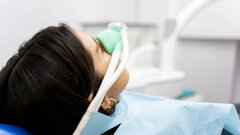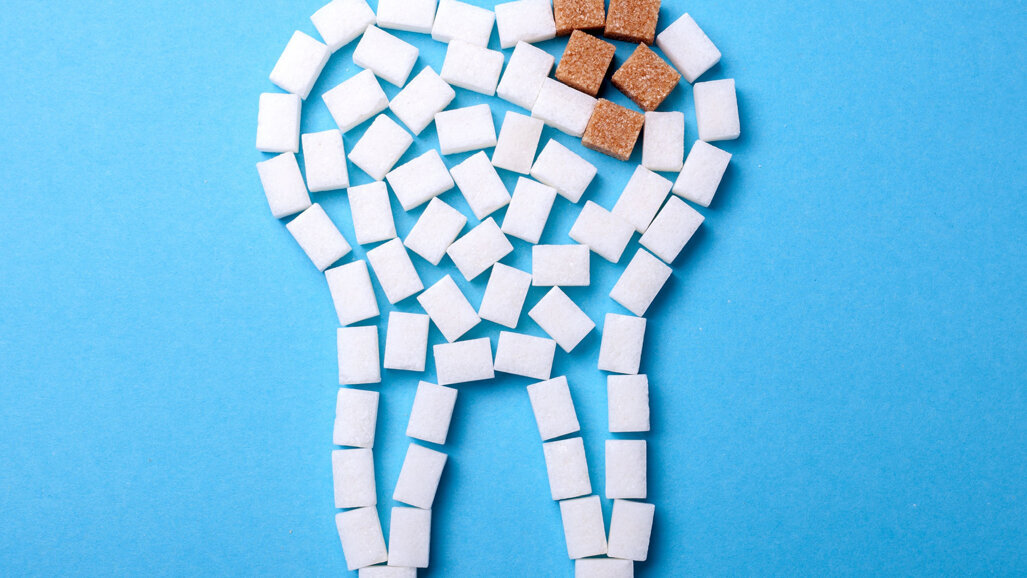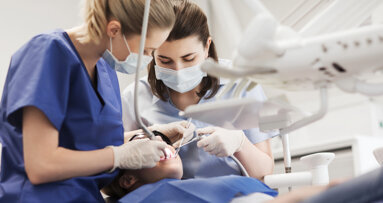The Brazilian study, published in journal Community Dentistry and Oral Epidemiology, found that inclusion of sugar and early interruption of breastfeeding are the main factors that contribute to the appearance of dental caries in two year olds.
The study tracked children born between 2015-16 in Cruzeiro do Sul, Acre state, Brazil. Dental caries were found in 22.8% of the 800 children examined. Researchers observed that breastfeeding for 24 months reduced consumption of ultra-processed foods or foods with added sugar, acting as a factor of protection against dental caries.
"Some previous studies pointed to an association between extended breastfeeding [for 12 months or more] and the occurrence of dental caries, but without properly accounting for the role of early added sugar consumption by these children. Our research found the increased risk of caries in the context of extended breastfeeding to correlate with sugar consumption," said Marly Augusto Cardoso, principal investigator for the project. Cardoso is a professor at the University of São Paulo's School of Public Health.
This news comes as experts warn British toddlers’ diets are amongst the worst in the world. A study of 66,000 children’s diets in eight countries, including UK, USA, Australia, Brazil and Mexico, found that under-fives in the UK have the highest consumption of mass-produced, ready-made foods, with these products making up nearly two thirds of British children’s average energy intake. Experts have expressed concerns that eating processed foods from such an early age could set habits for life, and fuel the risk of systemic diseases. The new study, published in Obesity Reviews, suggests children need to reduce their intake of these ultra-processed foods.
Parents have previously been warned that food pouches aimed at children under one can contain more sugar by volume than Cola-Cola. A survey of 109 fruit-based pouches, initiated by the British Dental Association (BDA), found the pouches marketed to babies as young as four months old contain sugar levels the equivalent of up to 150% of the fizzy drink. The report also highlighted the increased risk of tooth erosion and decay to infants as they often suck the food directly from the pouches.
BDA chairman Eddie Crouch concluded: “Tooth decay is the number one reason for hospital admissions among young children, and sugar is driving this epidemic.”
Tags:
LONDON, England: While chewing gum may be considered a somewhat undesirable habit, sugar-free varieties have been proved to be highly beneficial for oral ...
RUGBY, UK: Though the April 2018 introduction of the Soft Drinks Industry Levy—otherwise known as the sugar tax—has proved effective in reducing the ...
Traditionally, dentists have been taught that both dental caries and periodontal disease develop and progress as a direct result of patients’ ...
LONDON, England: One of the key promises of artificial intelligence-based (AI-based) tools in dentistry is the expediting of time-consuming tasks. The ...
LONDON, England: Driven by the NHS dental crisis, an increasing number of UK patients seeking cheaper dental work overseas are encountering unexpected ...
CARDIFF, Wales: A new qualitative study has found that many dental patients in Wales remain unclear about the different roles within National Health Service...
DUBLIN, Ireland: An unregulated use of fortified high-sugar food supplements is causing untold damage to the oral health of thousands of nursing home ...
Advances in technology in dentistry have rapidly improved diagnostics, streamlined treatments and made the dental chair a safer, more comfortable place. ...
LONDON, UK: Dental fellowships in the UK have increased threefold in the last decade, but only for dentists in the early stages of their career, figures ...
LONDON – Only 3 in 100 head and neck cancer patients in England receive the ideal standard of care, according to the National Head and Neck ...
Live webinar
Tue. 24 February 2026
6:00 pm UTC (London)
Prof. Dr. Markus B. Hürzeler
Live webinar
Tue. 24 February 2026
8:00 pm UTC (London)
Prof. Dr. Marcel A. Wainwright DDS, PhD
Live webinar
Wed. 25 February 2026
4:00 pm UTC (London)
Prof. Dr. Daniel Edelhoff
Live webinar
Wed. 25 February 2026
6:00 pm UTC (London)
Live webinar
Thu. 26 February 2026
1:00 am UTC (London)
Live webinar
Tue. 3 March 2026
4:00 pm UTC (London)
Dr. Omar Lugo Cirujano Maxilofacial
Live webinar
Wed. 4 March 2026
1:00 am UTC (London)
Dr. Vasiliki Maseli DDS, MS, EdM



 Austria / Österreich
Austria / Österreich
 Bosnia and Herzegovina / Босна и Херцеговина
Bosnia and Herzegovina / Босна и Херцеговина
 Bulgaria / България
Bulgaria / България
 Croatia / Hrvatska
Croatia / Hrvatska
 Czech Republic & Slovakia / Česká republika & Slovensko
Czech Republic & Slovakia / Česká republika & Slovensko
 France / France
France / France
 Germany / Deutschland
Germany / Deutschland
 Greece / ΕΛΛΑΔΑ
Greece / ΕΛΛΑΔΑ
 Hungary / Hungary
Hungary / Hungary
 Italy / Italia
Italy / Italia
 Netherlands / Nederland
Netherlands / Nederland
 Nordic / Nordic
Nordic / Nordic
 Poland / Polska
Poland / Polska
 Portugal / Portugal
Portugal / Portugal
 Romania & Moldova / România & Moldova
Romania & Moldova / România & Moldova
 Slovenia / Slovenija
Slovenia / Slovenija
 Serbia & Montenegro / Србија и Црна Гора
Serbia & Montenegro / Србија и Црна Гора
 Spain / España
Spain / España
 Switzerland / Schweiz
Switzerland / Schweiz
 Turkey / Türkiye
Turkey / Türkiye
 UK & Ireland / UK & Ireland
UK & Ireland / UK & Ireland
 International / International
International / International
 Brazil / Brasil
Brazil / Brasil
 Canada / Canada
Canada / Canada
 Latin America / Latinoamérica
Latin America / Latinoamérica
 USA / USA
USA / USA
 China / 中国
China / 中国
 India / भारत गणराज्य
India / भारत गणराज्य
 Pakistan / Pākistān
Pakistan / Pākistān
 Vietnam / Việt Nam
Vietnam / Việt Nam
 ASEAN / ASEAN
ASEAN / ASEAN
 Israel / מְדִינַת יִשְׂרָאֵל
Israel / מְדִינַת יִשְׂרָאֵל
 Algeria, Morocco & Tunisia / الجزائر والمغرب وتونس
Algeria, Morocco & Tunisia / الجزائر والمغرب وتونس
 Middle East / Middle East
Middle East / Middle East


















































To post a reply please login or register